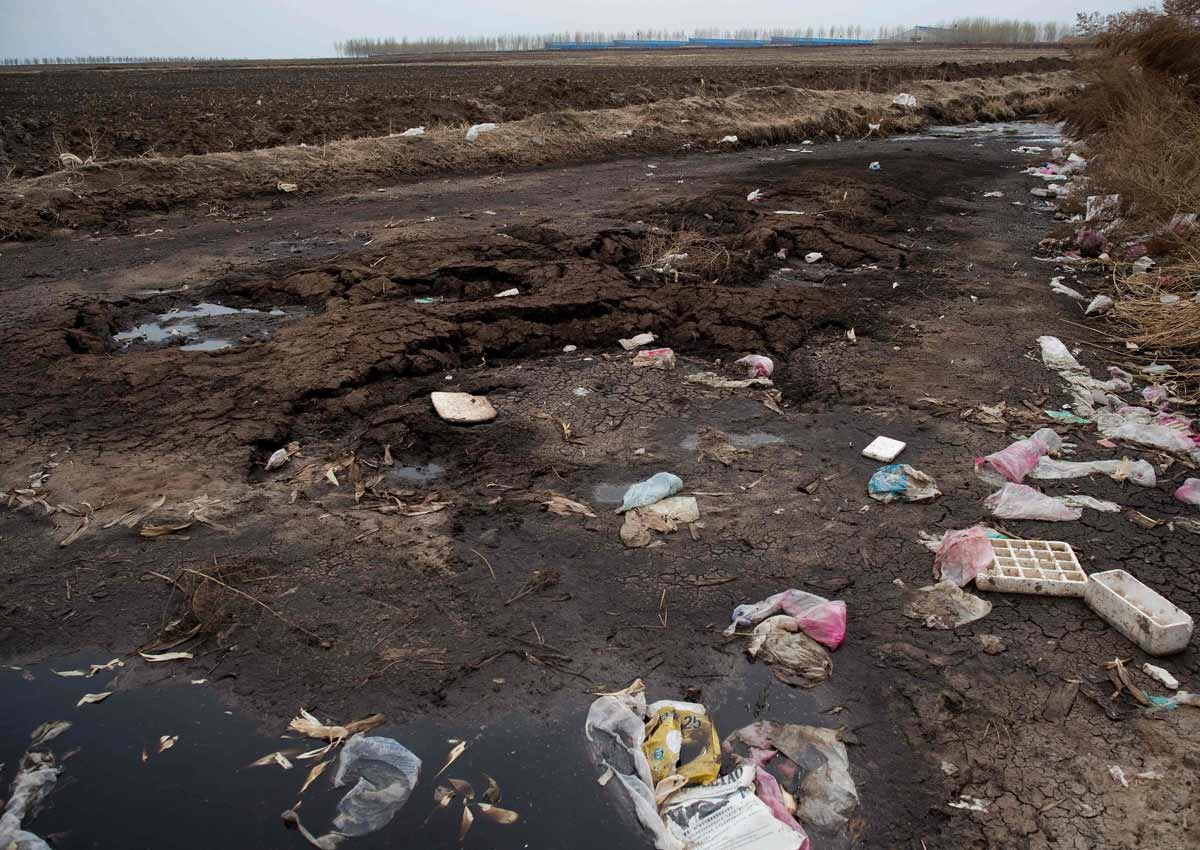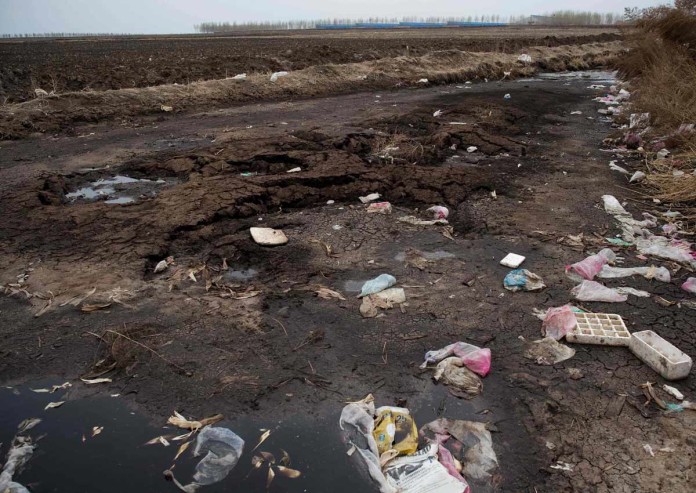Gannan, China –
Huge black fertilizer stands on the cornfield, and the rancid smell from thousands of cows flows out onto the land – this is the price of a glass of milk in China today.
Large dairies flourished in the Asian giants, with nearly 1.4 billion consumers overcoming centuries of culture unwilling to accept white liquids.
Economic prosperity and government support to transform dairy into an annual $ 40 billion ($ 58 billion) industry, shifting production from small-scale producers to large-scale giant animals, as many as 10,000 animals and wasting more.
“In the summer, the smell of feces is very strong,” said Ren Xiangjun, a farmer in Gannan County.
He points out that the green water flowing beneath the gray brick wall at the mega-farm owned by the agricultural conglomerate Feihe International added, “You can see how it flows out of the farm.”
He said: “The rubbish left after the injection just left here, my land directly affected.When Feihe farm in 2012 in northern Heilongjiang province grassland hills opened, it said it has 10,000 head of cattle.
In the village of Daxing next door, a woman named Ren Ren said: “You can see the dunghill heap mountains, no good for us, only pollution and noise.
Since 2000, the average annual growth rate of the Chinese dairy industry has exceeded 12%, due to the increase in wealth and desire for the health benefits of calcium.
The ruling Communist Party incited the expansion, in 2006, Premier Wen Jiabao expressed a “dream”, the Chinese children should enjoy 0.5 kilograms of dairy products every day.
But the 2008 scandal caused a scandal of industrial chemicals melamine killed six children, more than 30 million people were affected, shocked the industry’s confidence.
The crisis was blamed on small-scale farmers using chemicals to inflate the protein content of their milk because they were busy meeting demand.
The Chinese government responded by calling for a large milk production unit.
“They believe that if we have scale farms, they are easier to regulate and check,” says David Mahon, founder of a Beijing-based investment firm specializing in dairy products.
In other countries, such as New Zealand, there are large farms, but in a single facility there are rarely more than 3,000 cows.
By 2014, China has 56 farms with 10,000 head of cattle or more, or 80 percent of the world total, creating a series of pollution problems in some provinces, state media reported.
It is estimated that only 3,500 cows can produce 100,000 tons of liquid waste and effluent per year. Chinese farms need to be processed into fertilizer, but regulations are often flouted.
“There are some places in China where winter is better because of the small hills of sewage, once it unbearable to untie it,” Mahon said.
“China is learning dairy farming, lack of experience led to such a thing.
In Gannan, residents alleged that local officials profited from the farm and did not take action against the polluters. AFP could not verify the claim, and local food officials were unable to seek advice.
But the attitude may begin to change. Yang Liguo, vice president of China’s National Dairy Association, was named in 2014 as “the bigger the scale, the bigger the environmental, pollution and biosecurity issues.”
Mahon said that in Beijing there is a “real reflection”, the Chinese government “more and more looked at 350 farms.”
Packing more animals together increases the risk of disease, such as brucellosis, which can spread to humans and cause arthritis.
Eagle employees Wang Dali once in Gannan’s farm to destroy the bullpen, infected with brucellosis in 2012, making him unable to work, and now his joints are almost constant pain.
He blamed his infection on poor sanitation.
“Cows crowded together very close together,” he said, estimating that each has about 12 square meters. “There is no way to treat manure, we dug a big hole near the facility … now it piles up like a mountain.”
Fei Xiao denied the allegations of residents, a woman in the Gannan office to answer the phone said: “These things are impossible.
From a tractor to remove Dali’s dunghill, a farmer said: “pollution has not been clean, of course, have an impact.”
“We do not eat it ourselves, we sell them to the market,” he added.






